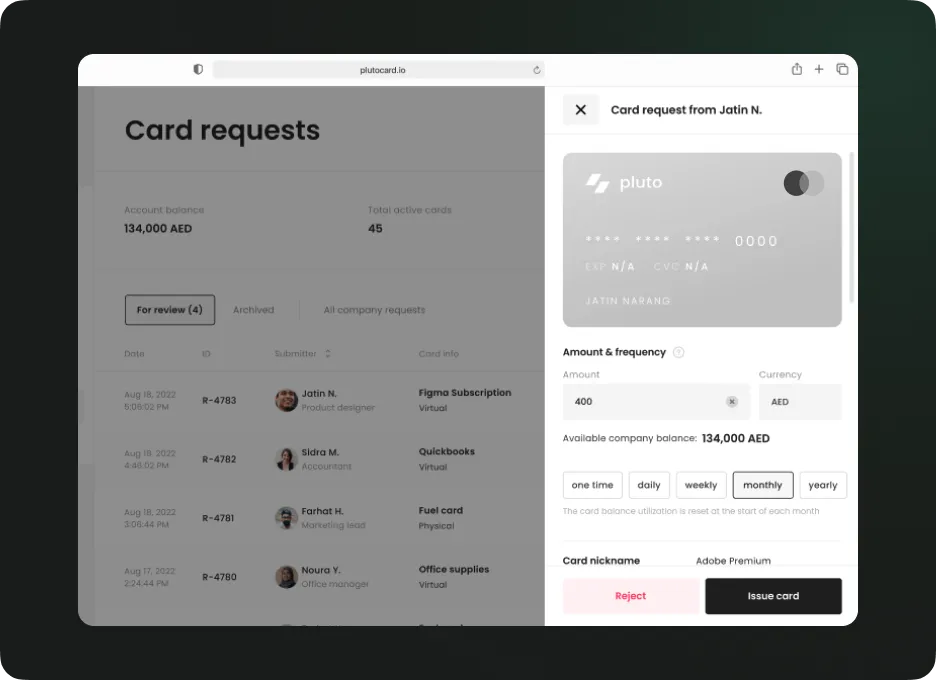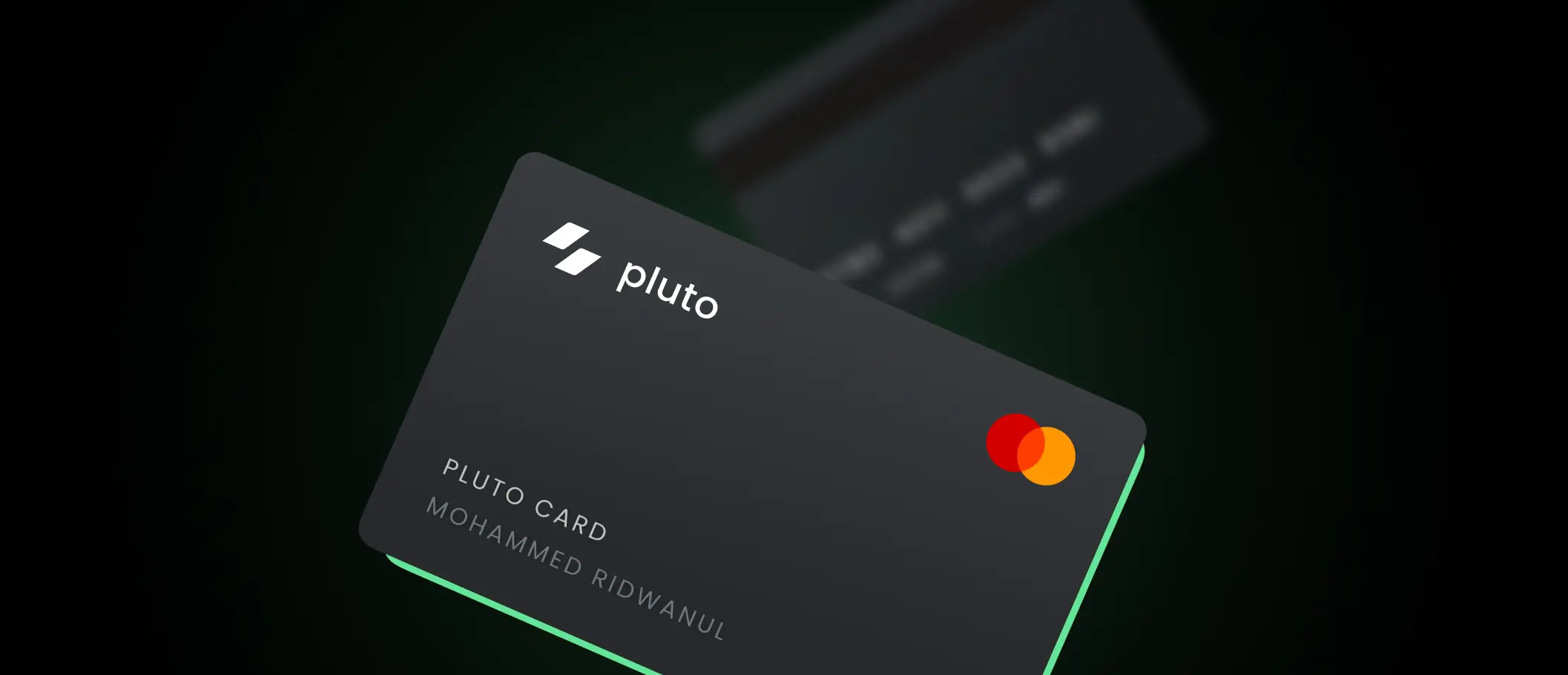On the surface, corporate card reconciliation looks manageable, especially with real-time transaction data coming in from your bank or card provider.
But what finance leaders get is a long, contextless list of transactions: amounts, merchant names, and dates. That’s it.
From there, CFOs and controllers are expected to turn that raw feed into structured, compliant reporting:
- which employee spent what,
- for what purpose,
- against which cost center, and
- whether it aligned with policy.
The information you get versus the clarity you need are worlds apart.
Even with modern card feeds, the manual effort remains. You still need to chase down receipts, apply tags, categorize expenses, and flag policy violations weeks after the transaction occurred.
Shared cards only exacerbate the issue, as there’s no way to know who actually made the purchase.
In this blog post, we explore whether there’s a better way to reconcile corporate card spend that reduces manual workload and provides finance teams with the visibility and control they truly need.
What is Corporate Card Reconciliation?
Corporate card reconciliation is the process of verifying that all expenses made using company-issued cards are accurate, legitimate, and properly documented.
While it sounds like a simple task of matching transactions to statements, in practice, it is much more layered, especially with multiple employees, departments, and spending categories.
At its core, the reconciliation process involves the following steps:
- Capture – Collect transaction data from corporate card statements or real-time feeds
- Assess – Review each transaction against internal records to identify who made the purchase and why
- Reconcile – Match the transaction with supporting documentation such as receipts, invoices, and approvals
- Record – Post the verified expense to the correct general ledger account, cost center, or project
So, reconciliation is not just about matching numbers.
Finance teams also need to determine whether the spend adhered to company policy, whether it was approved, and whether the necessary documentation—including receipts, invoices, and notes—has been submitted.
Without this context, even real-time transaction data becomes just a list of unknowns.
Automating the Corporate Card Reconciliation Process
Automation turns reconciliation from a tedious, manual process into one that occurs passively in the background, with finance only intervening when necessary.
Here’s how automation addresses the traditional credit card reconciliation workflow:
Expense automation not only speeds up the process but also removes friction at every step. Finance teams can focus on reviewing exceptions rather than building reports from scratch.
Why Automating Corporate Card Reconciliation Is No Longer Optional
If you have figured out a system—even a manual one—it is tempting to stick with it.
But the hidden costs of doing things the old way add up fast: delayed closings, compliance risks, and finance teams spending more time chasing than analyzing.
With Pluto’s smart corporate cards, reconciliation is no longer something you do at the end of the month—it happens automatically, in the background, as spending occurs.
Here is how Pluto transforms the process from swipe to close:
1. One card, one owner—no more guesswork

Shared cards are the root of reconciliation chaos. You do not just lose visibility—you lose accountability.
With Pluto, you can issue unlimited physical and virtual cards with pre-set budgets and rules, ensuring every transaction is traceable and policy-compliant from the start.
2. Approvals before spending with a complete audit trail

In most companies, credit card policy enforcement happens after the transaction, when finance is cleaning up.
Pluto reverses this. It's built-in approval workflow lets you customize multi-step approvals without writing a line of code. You decide who approves what—and under which conditions—so every transaction is cleared before it happens, with a complete audit trail, not retroactively flagged during reconciliation.
3. Receipt capture and documentation

Receipts are the biggest drag on finance teams. Pluto automates this at the point of spend.
A WhatsApp nudge, an uploaded receipt, and Pluto’s optical character recognition (OCR) do the rest—mapping taxes, extracting line items, and locking it to the transaction.
You do not chase documentation.
4. Flag out-of-policy spending

By the time a bank statement reveals a policy breach, it is too late.
Pluto’s embedded controls prevent most violations at the point of swipe and surface the rest in real time.
You are not looking for red flags—you are resolving them before they become a problem.
5. Real-time transaction data

Banks show you amounts and merchant names. That is not enough.
Pluto pipes real-time transactions into a centralized dashboard—already attributed to the spender, tagged to a budget, and policy-checked. This eliminates the need for statement downloads and batch uploads—and provides finance with instant visibility into where money is being spent.
6. Faster month-end close with ERP integration and GL mapping

Pluto handles the heavy lifting at the point of spend—approvals, tags, receipts, and GL codes—so finance simply reviews, rather than reworks.
So when it’s time to close books, finance reviews exceptions, rather than building reports. Pluto syncs seamlessly with your enterprise resource planning (ERP) or accounting system.
Each transaction comes pre-tagged with tax codes and GL categories, reducing the need for manual data entry or reclassification during journal entries.
Swipe. Capture. Close. Done.
Finance teams were never meant to spend their time chasing receipts and untangling statements. But without the proper infrastructure, reconciliation becomes reactive, messy, late, and manual.
Pluto changes that by embedding control, clarity, and context into every transaction.
From individual cards with built-in rules to automated receipt capture and ERP-ready data, reconciliation becomes a seamless part of the workflow, no longer a burden.
No more chasing. No more guesswork. Just clean books, closed faster.
Sign up for free today and start using Pluto's smart corporate cards and automate reconciliation from swipe to close.
.png)


.png)















